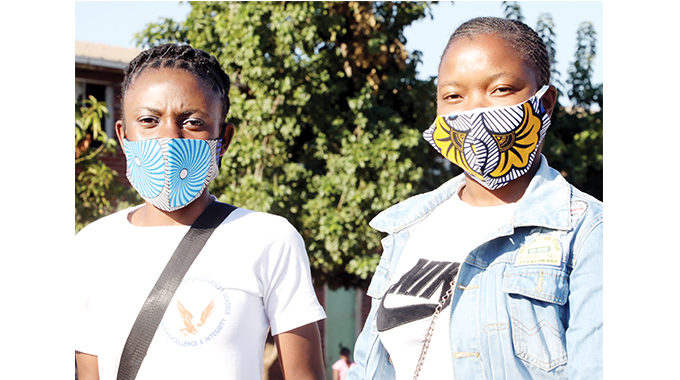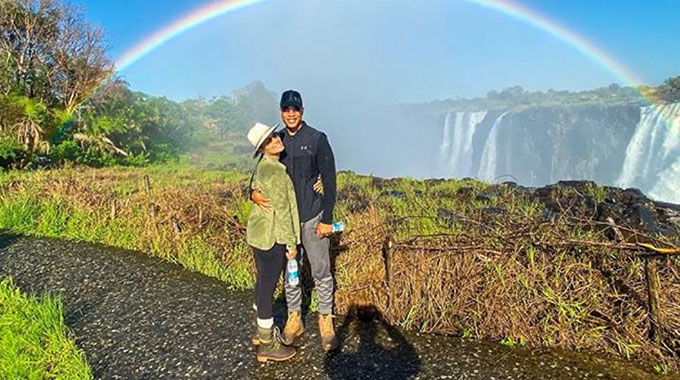COMMENT: Adhere to lockdown regulations to stay safe

THE announcement by President Mnangagwa last Friday on the further easing of lockdown regulations to level 2 has brought a lot of excitement among Zimbabweans as more people, depending on their occupation, are now able to move from different points.
The easing of the lockdown has opened the door for industry and commerce to resume operations, only if they have met the laid down regulations contained in the Statutory Instrument 99 of 2020 among a raft of measures that are to be followed including the wearing of face masks which is now mandatory.
Some members of the public have wrongly interpreted the easing of the lockdown regulations to mean that the country is no longer under threat from Covid-19 and behaved recklessly in a move that may have dire consequences.
We would like to advise the public to continue conducting themselves in a manner that would not put them at the risk of contracting the virus.
It is important for the public to also remember that to date, there is no cure neither is there a vaccine to the virus and the only hope for now is adhering to the regulations of the lockdown.
Yesterday we reported that the police in Bulawayo had arrested 115 in the city for disobeying level two lockdown regulations and said the majority was for non-adherence to the standing orders on wearing of masks.
“We arrested 115 people, most of them for issues to do with wearing of masks. We are enforcing a law announced by President Mnangagwa that people must be wearing masks at all times if outside of their homes. We are seeing some people displaying masks but not wearing them. If one is in public places, the mask must be covering your nose and mouth, and it must not be hanging on your chin or just on your forehead, or in your handbag. It must be worn,” said Bulawayo police spokesperson Inspector Abednico Inspector Ncube.
“So, we are arresting all those people with masks but not wearing them, and those without. We are flexible on what people are using as masks. We just want the mouth and nose covered that is all. People can improvise and use what is available but they must be covered when not at home.”
He commended Bulawayo residents who complied with the new requirements.
“We, however, applaud Bulawayo residents because most of them who were moving about yesterday had masks on, especially in the CBD where there is usually limited social distancing,” said Inspector Ncube.
In a Press briefing after a meeting of the National Taskforce on Covid-19 on Sunday, the Minister of Information Publicity and Broadcasting Services, Monica Mutsvangwa, said the containment measures does not mean the country is out of the woods.
“Fellow Zimbabweans, the easing down our lockdown and containment measures does not mean that we are out of the woods yet. Level 2 comes with certain conditionalities. Let us all comply with these conditions and save our people and our nation,” she said.
“In the words of His Excellency, the President, level 2 is designed to restart certain sectors of our economy, while recognising the compelling credence in maintaining the lockdown. Let us stay safe, wear our face masks, and practice good hygiene.”
With the pressure imposed on all countries by Covid-19, health experts have said home-made masks were safe to use on condition that they are used properly.
“Home-made masks should be double clothed or pleated. It’s not necessary to stretch or open up the pleats, as long as the mask is covering the nose and mouth, then it is fine. Always ensure that your mouth and nose are covered. The public must also remember the safe way to use masks. If not washed for each use, the reusable mask can be a health hazard as they can harbour bacteria and viruses. These masks should not be shared, just like underwear,” said Zimbabwe Medical Association (Zima) secretary-general Dr Sacrifice Chirisa.
“It is expected. When someone is wearing a mask for the first time, that discomfort and feeling of suffocation is normal. However, it is not deadly. Otherwise our doctors would have dropped dead when conducting surgeries that take long hours because they wear masks the entire time.”
Some enterprising tailors and schools have started making home-made masks from their backyards and were providing them at a lesser price than pharmacy prices.
A disposable mask at a pharmacy costs between US$1 and US$3, while a reusable one costs between US$3 and US$5. However, home-made masks were going for between $10 and $15.
A number of primary and secondary schools in Matabeleland North have started making masks and sanitisers with authorities saying some institutions have had their products approved while others had sent samples for approval.
Schools with science laboratories will be manufacturing both sanitisers and masks while others will only make masks in their textiles and design technology departments.
Pupils are making the PPEs with the guidance of teachers in line with the new curriculum which encourages lifelong skills learning alongside academic learning.
The initiative by the schools is commended and we urge relevant authorities to ensure that the learners are supported in their initiative.








Comments